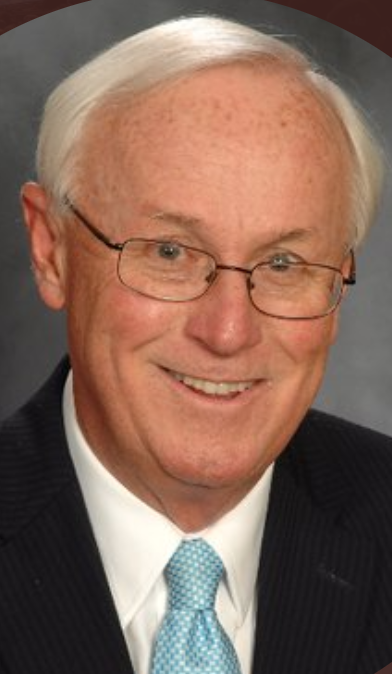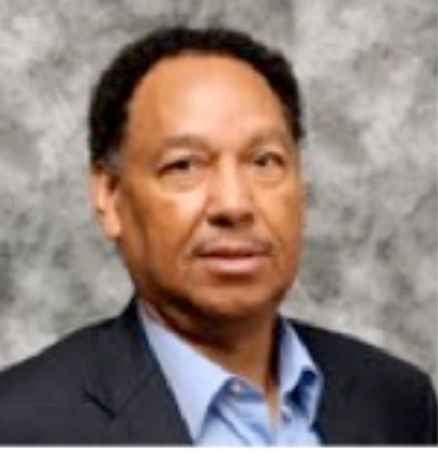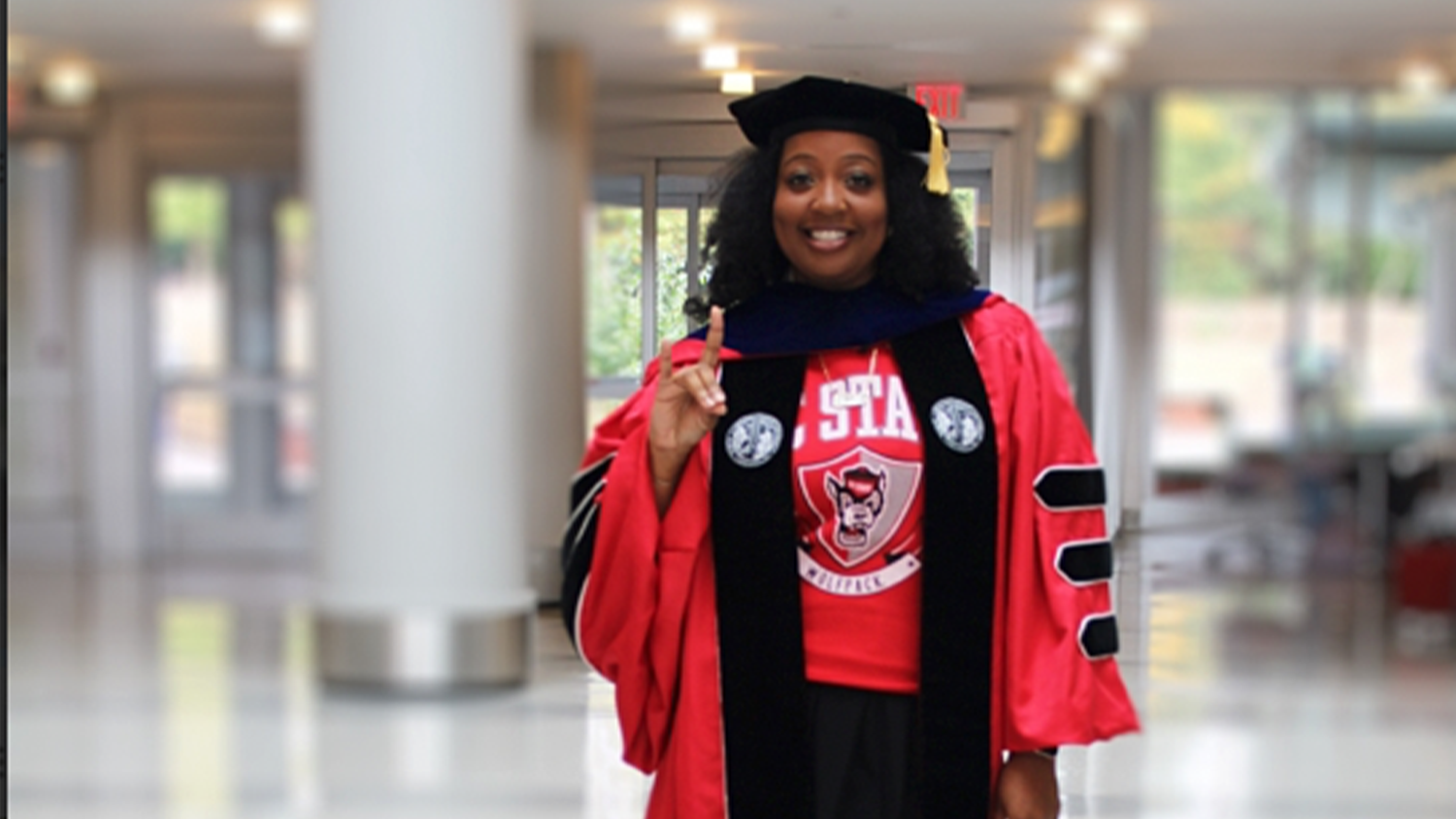Five Questions with the Educational Leadership Doctoral Program Instructors
Students in the second cohort of the NC State College of Education’s Doctor of Education in Educational Leadership program, which begins this summer, will have the opportunity to learn from former State Superintendents of Public Instruction June Atkinson ‘96EDD, Bill Harrison and Mike Ward ‘77BS, ‘81MS, ‘93EDD as well as former U.S. Assistant Secretary of Education Henry Johnson ‘90EDD, who all serve as professors of the practice in the program.
Below, each of the four instructors share why it’s important to help train the next generation of district leaders, why they chose the NC State College of Education and what they hope their students learn from them.
 Former State Superintendent of Public Instruction June Atkinson
Former State Superintendent of Public Instruction June Atkinson
Why did you decide to work with this EDD program in the NC State College of Education?
Recognizing how important school leadership is for student success, I want to share the lessons I have learned during my career to help other educational leaders to be successful in their endeavors to lead and manage educational organizations effectively.
Why is it important to you to help train future generations of school superintendents?
Every organization needs a strong leader to develop, improve and sustain the goals and objectives of an organization. Given the complexity and the dynamics of education, educating each child effectively and efficiently will require well-prepared superintendents to meet future challenges of having a well educated citizenry.
What is your teaching philosophy?
When I think of my role as a teacher, I focus on support, relationships and engagement to help build student competence in dealing with contemporary and future challenges and issues. It is important for me to understand each student’s aspirations and goals and find ways to help those aspirations become a reality. That support includes understanding the past for determining future direction, open communications and respect for diverse opinions, as well as an enthusiasm for always learning.
What do you hope students come away from your classes knowing or understanding?
I hope they leave my classroom knowing how to lead and manage in a challenging, complex and changing environment of education.
Why did you choose a career in education?
When I graduated from high school, I thought I had limited career options, one of which was being a teacher. Having a grandmother who always wanted to be a teacher, I chose to follow her dream and major in business education. That way, I would have the option of working in some field of business should I not become a teacher. Mr. Homer Duff, the Roanoke County career-technical director, observed me as a student teacher, and then offered me a job to teach business subjects in Roanoke County, Virginia. I accepted the job and continued in education as my career. Regardless of my role in education, I have found the educational field rewarding, challenging and a place where you can make a positive difference.
 Former State Superintendent of Public Instruction Bill Harrison
Former State Superintendent of Public Instruction Bill Harrison
Why did you decide to work with this EDD program in the NC State College of Education?
While I have been serving as an adjunct for NC State University since the mid-90’s, this is an exciting opportunity. The Northeast Leadership Academy (NELA) has been a model for developing principals since 2011. I’ve often thought that a NELA type of preparation program for aspiring superintendents would be a logical next step for the leaders graduating from NELA.
Why is it important to you to help train future generations of school superintendents?
I have often said that at the end of the day it’s the teacher in the classroom that makes the difference. The principal is critical because he or she recruits, selects, develops and retains teachers. The good ones get the best teachers. By the same token, it is the superintendent that hires and supports the principal. Additionally, the superintendent’s position is incredibly complex. It takes a special talent with special training to navigate the complexities. How does one prepare to lead through the situation we find ourselves in today? I believe we do that by having a strong foundation and coming through a training program that has a strong clinical component.
What is your teaching philosophy?
I simply believe it is our moral obligation to provide students with the skills to access their dreams. That is done in a standards-based environment that is nurturing, collaborative and risk free.
What do you hope students come away from your classes knowing or understanding?
I hope they have a strong foundation in the concepts taught in the class with the ability to apply those concepts in real life situations.
Why did you choose a career in education?
Coming out of undergraduate school, my career goal was to be a basketball coach. However, my principal during my first year teaching convinced me I could be a good school leader. I chose that path and have been coaching “bigger” teams ever since. I’ve moved into developing leaders as I thought about the influence others had on my leadership journey. I’ve always felt a school leader’s role to be about developing adults as much as it is about developing students.
 Former U.S. Assistant Secretary of Education Henry Johnson
Former U.S. Assistant Secretary of Education Henry Johnson
Why did you decide to work with this EDD program in the NC State College of Education?
Simply stated, I think the components of the program effectively address increasing the knowledge base, expanding the skill set and strengthening the disposition needed for successful school leadership at senior levels. The focus on combining theory and its practical application in the process is a real strength. I consider it an honor to be associated with a program that works to develop these behaviors and attitudes in aspiring senior leaders.
Why is it important to you to help train future generations of school superintendents?
Leadership matters in successful schooling. While research indicates that teaching is the single largest school-based factor related to student learning, leadership at the building and district levels also matters greatly. The superintendent is in the unique position to have the greatest large scale impact on learning outcomes. Effective superintendents understand the importance of aligning education standards, curriculum, instruction, assessments and support. They have the ability to attract good staff and create an environment which supports and empowers staff to use and develop practices that result in improved learning outcomes. After having gained much in and from education, it is important for me to give back to the profession.
What is your teaching philosophy?
At its core, my teaching philosophy is that students should be the doers in a learning experience. It is woefully insufficient for students to just listen to ideas about effective schooling. They must actually research and try out practices associated with better outcomes. While acquiring knowledge, they must develop skills with which to apply the knowledge. My job is to help guide the process. In my classes, the dominant mode of interaction is student talk. Each session is preceded by a set of guided questions and comments related to assigned readings. This is followed by student presentations related to the topics and discussion of related takeaways. Often there is a guest speaker who has demonstrated success related to the topic(s) being discussed.
What do you hope students come away from your classes knowing or understanding?
While each course has a particular emphasis, I expect students to be more systemic in their thinking. I want them to understand that education has a lot of complexity, yet know that there are several factors related to successful education that they can and should influence. I want them to gain conceptual understanding, ask insightful questions and think in “if this, then that” terms. This type of thinking allows for testing of assumptions and hypotheses. Ultimately, I want them to have a knowledge base and skill set to positively impact factors related to student learning outcomes — to be proficient in the standards and competencies associated with an effective school executive (and more).
Why did you choose a career in education?
Actually, I think it chose me. Even as an elementary student, I remember trying to help some fellow students who were struggling. However, I never really thought much about being a teacher. Although, I did scrutinize teachers (elementary through college) regularly. I guess it was just to think about what related well to me and what did not. In college, I majored in biology and became a lab assistant for my junior and senior years. I decided to start taking education courses at the end of my sophomore year. During that summer and the next, I loaded up on education courses, while still thinking that my future would be in some medical field. After graduating college, I was asked by the college to teach a Biology I summer course to students who failed the freshmen course. Also during that summer, a scholarship for me to study hospital administration at the University of Michigan came in. Unfortunately, my family, college advisors and I decided that the amount was insufficient for me to accept at that time, so I started looking for another option. The registrar of my college connected me with a principal who was looking for a biology teacher. That’s how I began teaching — and coaching — and I started to love it and get pretty good at it. So much so, that for the next three years, while offers from Michigan with increasing amounts of support were received, I ultimately decided that teaching, not hospital administration, would be my profession.
 Former State Superintendent of Public Instruction Mike Ward
Former State Superintendent of Public Instruction Mike Ward
Why did you decide to work with this EDD program in the NC State College of Education?
I was privileged to have the opportunity to serve a career as a school administrator in North Carolina. The fact that I could embrace these opportunities was, in a very significant part, due to my own degrees from NC State. So, I jumped at the chance to serve as an instructor and dissertation coach at my alma mater in the doctoral program that proved so beneficial to me.
Why is it important to you to help train future generations of school superintendents?
The challenges and the opportunities confronting schools and their communities have never been more complex. It’s not a simple thing to ensure that schools serve all kids well in such an environment. We need for thoughtful, well-trained, inspirational leaders to step up and take on these issues. Having served as both a local and state superintendent, I want to do my part to ensure that aspiring leaders have a thorough grounding in the knowledge, skills and professional dispositions that will enable them to deal with the challenges, embrace the opportunities and help our students grow into all that we hope they can become.
What is your teaching philosophy?
I believe that our graduate students in educational leadership are entitled to a program of studies that embraces multiple kinds of learning experiences. I want to create opportunities for them to encounter literature that provides useful research and compelling insights about leadership in schools. I want them to discuss what they read and apply these insights to projects that simulate challenges that superintendents routinely encounter. I want them to serve meaningful internships as part of their program. And finally, I want to provide them with opportunities to engage with contemporary district and state school leaders and education policymakers. These encounters provide them the chance to discuss important issues with exemplary practitioners and with those who make the rules.
What do you hope students come away from your classes knowing or understanding?
I’d like for them to understand the fundamentals of effective leadership practice. I want them to
understand the importance of a compelling vision and mission — and to build the kinds of related
strategic aims that ensure continuous improvement in their schools and districts. I hope that they’ll understand their critical obligations to recruit, develop and support the teachers who serve our students. I hope that they’ll know how to be effective and trustworthy stewards of the public’s resources and the public’s trust in the institutions of education. And, yes, I hope that they’ll become comfortable with approaching education policymakers and that they learn important lessons about their key role as advocates for education.
Why did you choose a career in education?
My own teachers inspired me so much. That said, my original career path was not education — I was going to be an architect! But early in my college career, I spent time as a volunteer in South America and I realized that I wanted a job that would allow me to serve the community in a different way. I’d already been a teacher in other settings. I was a swimming instructor and I interacted with children as a 4-H volunteer, so I already knew that I liked working with kids. And someone asked me an important and timely question: “Why don’t you become a teacher?” It’s been like that my entire career. At each really important career juncture, someone I respected has asked a question or offered advice that helped me finalize a decision about my next career move. I’m forever grateful to these folks who’ve cared about my work and mentored me. I’d like to offer the same kind of support to others.
- Categories:


